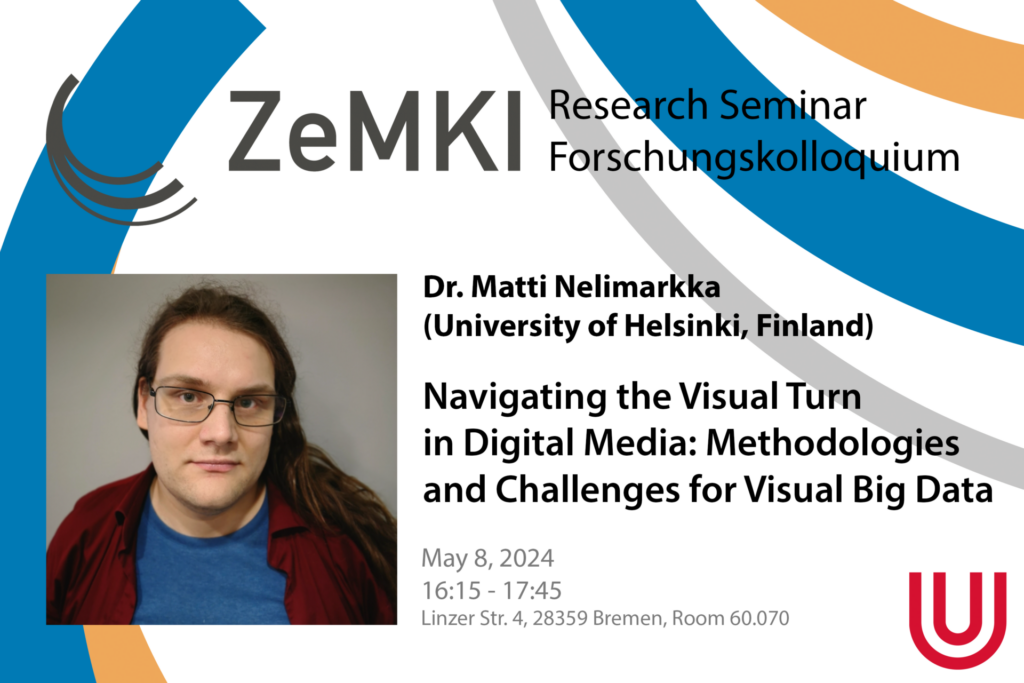
Dr. Matti Nelimarkka (University of Helsinki, Finland): "Navigating the Visual Turn in Digital Media: Methodologies and Challenges for Visual Big Data"
- Datum: 8. May 2024 – 8. May 2024
- Time: 16:15
- Street: Linzer Str 4
- Location: ZeMKI
- Room: 60.070
As digital media takes a decidedly visual turn, researchers delving into (social/digital) media adapt and refine their methodologies to handle visual big data. This talk provides an overview of my research team’s initiatives aimed at leveraging images as a substantive data source. We work on utilising machine learning for scalable image analysis or ‘images-as-data’, but wish to challenge the traditional classification of images and delve into the broader potential of visual data analysis as an exploratory method.
In our first study, we explore the dynamics of image circulation within and outside of Facebook. The insights derived from tracing these visual streams open new dimensions for understanding digital influence and information spread, only possible with images. The second segment of our research critiques and seeks to enhance the accuracy of existing automated image labeling systems. By critically assessing the validity of the generated labels, we aim to refine these systems to produce more reliable and applicable data for social science research. Our third investigation diverges from supervised methods to examine the prospects of unsupervised image clustering. This approach allows us to group visual data organically, providing a fresh, bottom-up perspective on how images relate to each other without predefined categories.
Collectively, these methods not only propel the capability for automated analysis but also foster a more exploratory approach to visual inquiry. They signal the expansion of visual big data while concurrently underscoring the pressing need for methodological innovations to overcome existing challenges.
Bio:
Matti Nelimarkka leads the Helsinki Social Computing research group, where he combines social science theory and ideas with tools and approaches adapted from computer science research, such as prototyping, coding, user centric design and, machine learning. His work focuses on two thematical areas: Computational Social Science and Data Science and Digital Democracy. He currently works at the Centre for Social Data Science, University of Helsinki.

